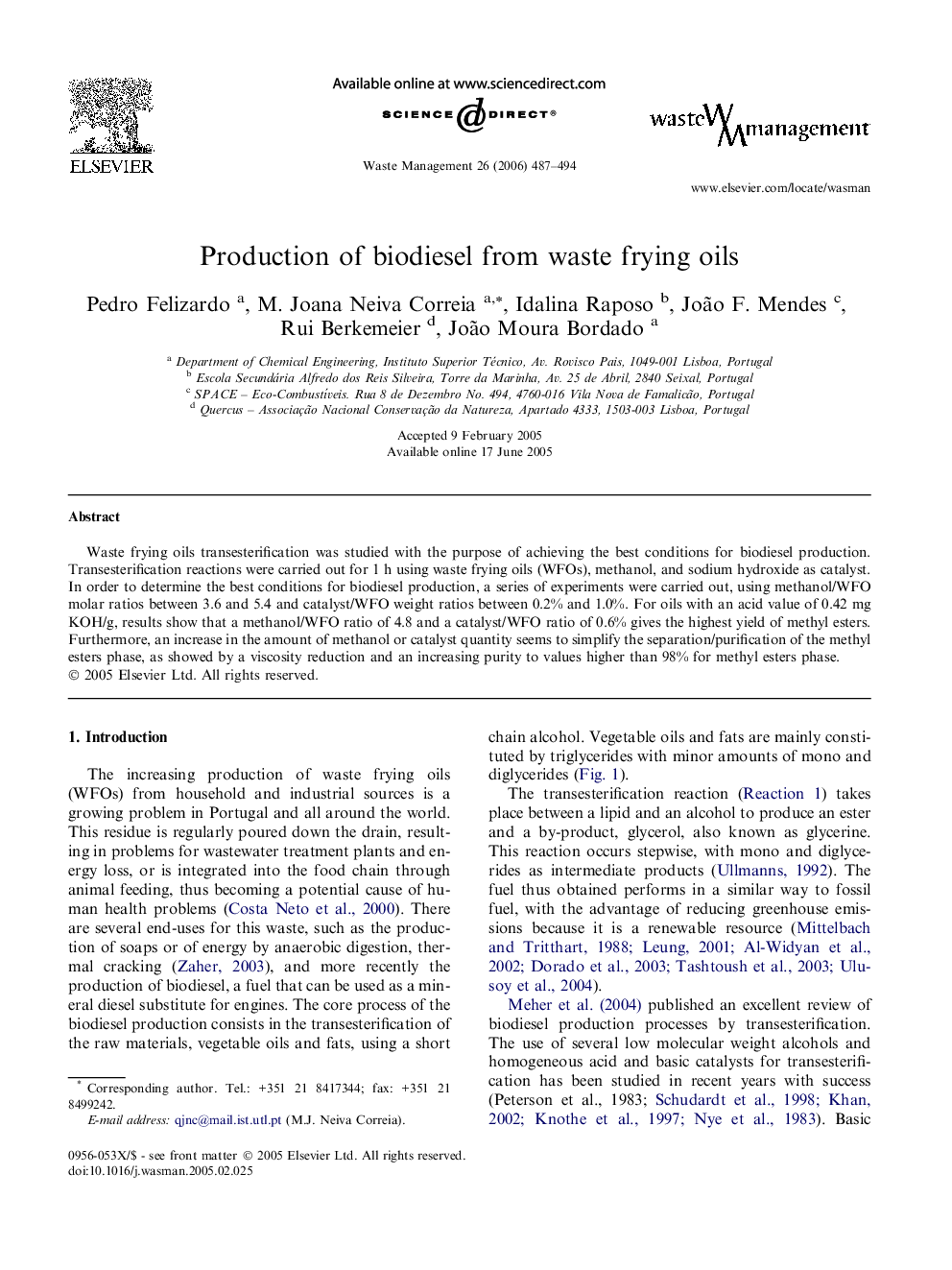| Article ID | Journal | Published Year | Pages | File Type |
|---|---|---|---|---|
| 4474040 | Waste Management | 2006 | 8 Pages |
Waste frying oils transesterification was studied with the purpose of achieving the best conditions for biodiesel production. Transesterification reactions were carried out for 1 h using waste frying oils (WFOs), methanol, and sodium hydroxide as catalyst. In order to determine the best conditions for biodiesel production, a series of experiments were carried out, using methanol/WFO molar ratios between 3.6 and 5.4 and catalyst/WFO weight ratios between 0.2% and 1.0%. For oils with an acid value of 0.42 mg KOH/g, results show that a methanol/WFO ratio of 4.8 and a catalyst/WFO ratio of 0.6% gives the highest yield of methyl esters. Furthermore, an increase in the amount of methanol or catalyst quantity seems to simplify the separation/purification of the methyl esters phase, as showed by a viscosity reduction and an increasing purity to values higher than 98% for methyl esters phase.
